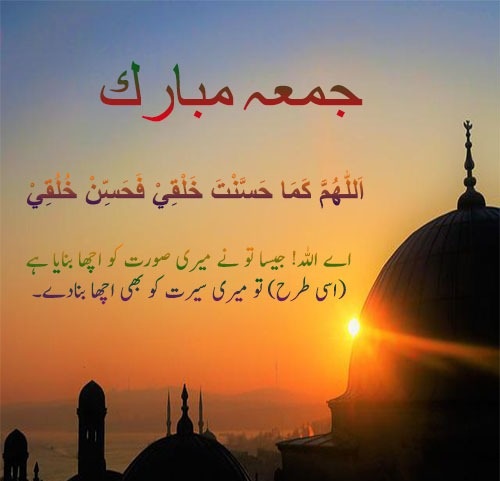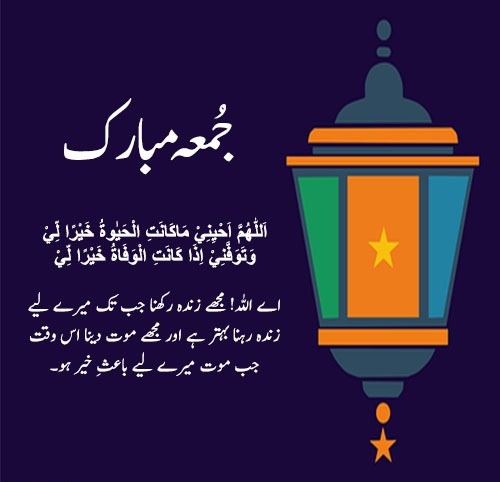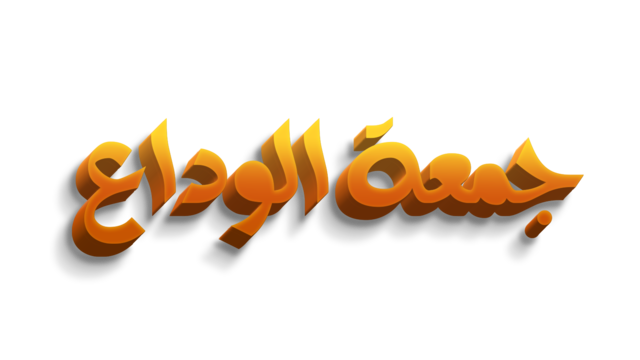
This prayer is asking for blessings on the Prophet Muhammad, forgiveness for the believers, and acceptance of our righteous deeds. You can pair this text with an appropriate image or greeting to wish someone a blessed Jumma Mubarak.
This text is wishing a blessed Jumma to the recipient, asking for God’s mercy and forgiveness for everyone and seeking His blessings and happiness on this special day. You can pair this text with a relevant image to create a Jumma Mubarak greeting picture.Jumma Tul Wadi Dua.
This prayer asks for God’s mercy, blessings, forgiveness, and guidance on the blessed day of Jumma. It’s a way to send good wishes and prayers to others on this special day.
Jumma Tul Wadi, also known as Jumu’ah-tul-Wida, is a significant and sacred day in the Islamic calendar. It falls on the last Friday of the holy month of Ramadan, just before the Eid al-Fitr celebration. On this day, Muslims around the world gather to offer special prayers and supplications.
The dua (prayer) for Jumma Tul Wadi is a heartfelt and profound expression of faith and devotion. It is a time when believers seek forgiveness for their sins and ask for Allah’s blessings and guidance. The dua often includes prayers for the well-being of all humanity, for peace, and for a better world.
The significance of Jumma Tul Wadi is rooted in the belief that this day concludes Ramadan, a month of fasting, self-reflection, and increased devotion.
It is a time to make amends, seek spiritual renewal, and strengthen one’s connection with Allah.
As you engage in the special dua for Jumma Tul Wadi, remember the essence of this day – forgiveness, gratitude, and unity. May peace, blessings, and spiritual fulfillment be found, and may prayers be answered by you. Jumma Tul Wadi is a time to reflect on one’s journey of faith and to renew one’s commitment to a life of righteousness and compassion.
Jumma Tul Wadi, also known as “Yawm al-Wada,” is a significant day in the Islamic calendar that holds special significance for Muslims. This day is commemorated on the 9th of Dhul Hijjah, the final month of the Islamic lunar calendar, which also coincides with the annual pilgrimage of Hajj in Mecca. Jumma Tul Wadi is a day of prayer, reflection, and supplication.
The primary reason Jumma Tul Wadi is considered important is due to the sermon delivered by the Prophet Muhammad (peace be upon him) during his farewell pilgrimage in the 10th year of the Islamic calendar. This farewell sermon, known as the “Khutbah al-Wada,” is a profound address in which the Prophet conveyed essential guidance, principles, and farewell messages to his followers. He emphasized the equality of all Muslims and the importance of unity, brotherhood, and the sanctity of life and property. The sermon also underscored the rights and responsibilities of women, the significance of upholding justice, and the prohibition of interest in financial transactions.
On Jumma Tul Wadi, Muslims around the world gather at mosques and prayer grounds to hear or read the farewell sermon, which serves as a reminder of the Prophet’s teachings and principles. The sermon’s timeless messages on morality, ethics, and social justice continue to be a source of guidance and inspiration for Muslims.
Additionally, Jumma Tul Wadi is a day for devout Muslims to engage in acts of worship and prayer. They seek forgiveness for their sins and offer supplications for the well-being of their fellow believers and for the betterment of the entire world. Many Muslims also fast on this day, following the Sunnah (traditions) of the Prophet Muhammad, as it is believed to expiate sins and earn rewards.
The day also holds significance for those Muslims who have the opportunity to perform the Hajj pilgrimage. Jumma Tul Wadi marks the culmination of Hajj and the beginning of the stoning of the three pillars representing Satan. This ritual symbolizes the rejection of evil temptations and the recommitment to a life guided by faith and moral values.
In summary, Jumma Tul Wadi is a momentous day in the Islamic calendar that honors the farewell sermon of the Prophet Muhammad during his last pilgrimage. It serves as a reminder of his teachings, emphasizing unity, equality, justice, and the sanctity of human life. Muslims mark this day with acts of worship, prayer, and supplication, seeking forgiveness and reflecting on the timeless wisdom of the Prophet’s message. It is a day that promotes spiritual growth, community bonding, and a commitment to the core values of Islam.
Jumma Tul Wadi, also known as “Yawm al-Wada,” is a day of immense spiritual importance in the Islamic calendar. It falls on the 9th of Dhul Hijjah, the final month of the Islamic lunar calendar, which coincides with the annual Hajj pilgrimage in Mecca. This special day is marked by prayer, reflection, and supplication, and it is associated with the farewell sermon of the Prophet Muhammad (peace be upon him).
The primary reason Jumma Tul Wadi holds such significance is the farewell sermon delivered by the Prophet Muhammad during his last pilgrimage in the 10th year of the Islamic calendar. This farewell sermon, known as the “Khutbah al-Wada,” is a profound address in which the Prophet conveyed essential guidance, principles, and farewell messages to his followers. It contains teachings that are not only relevant to the people of that time but are also timeless and continue to guide Muslims to this day.
In his sermon, the Prophet emphasized the equality of all Muslims, regardless of their racial, ethnic, or social backgrounds. He stressed the importance of unity and brotherhood among the Muslim Ummah, highlighting the sanctity of life and property. The Prophet Muhammad placed great importance on justice and the equitable treatment of all individuals, regardless of their status. He underscored the rights and responsibilities of women in society, calling for their dignity and protection. Furthermore, he explicitly prohibited the charging of interest in financial transactions, advocating ethical and fair financial practices.
On Jumma Tul Wadi, Muslims worldwide congregate in mosques and prayer grounds to either hear or read the farewell sermon. This practice serves as a reminder of the Prophet’s teachings and principles. The sermon addresses critical aspects of morality, ethics, and social justice, offering timeless guidance and inspiration to the Muslim community.
Devout Muslims use this day as an opportunity for self-reflection, supplication, and deep prayer. They seek forgiveness for their sins and offer heartfelt prayers for the well-being of their fellow believers and for the betterment of the entire world. Some also choose to fast on this day, following the Sunnah (traditions) of the Prophet Muhammad, as it is believed to expiate sins and earn spiritual rewards.
Jumma Tul Wadi is also significant for those who have the privilege of performing the Hajj pilgrimage. It marks the culmination of Hajj and the beginning of the ritual of stoning the three pillars that symbolize Satan. This act symbolizes the rejection of evil temptations and the reaffirmation of one’s commitment to a life guided by faith and moral values.
In summary, Jumma Tul Wadi is a momentous day in the Islamic calendar that commemorates the farewell sermon of the Prophet Muhammad during his last pilgrimage. It serves as a reminder of his teachings, which emphasize unity, equality, justice, and the sanctity of human life. This day calls for acts of worship, prayer, and supplication, allowing Muslims to seek forgiveness and reflect on the timeless wisdom of the Prophet’s message. Jumma Tul Wadi promotes spiritual growth, strengthens community bonds, and encourages a commitment to the core values of Islam. It is a day of both personal and collective renewal of faith and a recommitment to the principles of justice, equality, and ethical conduct.Jumma Tul Wadi Dua.




